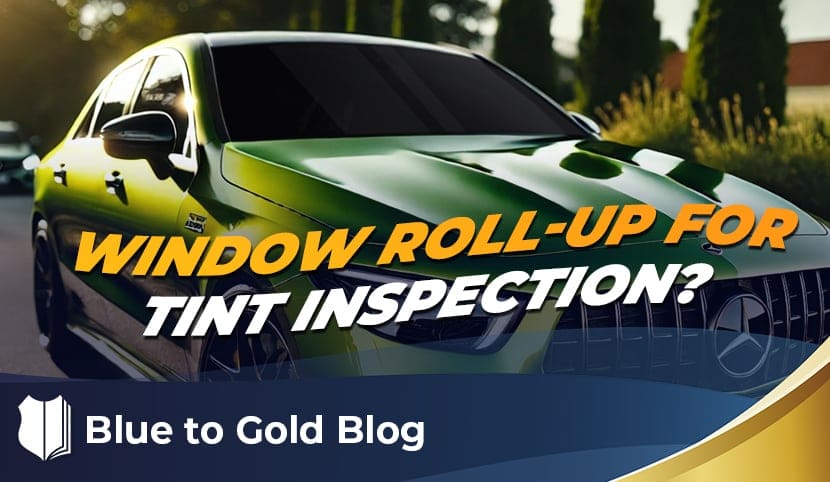This question comes from someone in Texas. To be honest, I’m not sure whether it’s from an officer or a citizen, but that’s okay.
Here’s the scenario: An officer pulls over a car for suspected illegal window tint. The driver rolls down all the windows before the officer even reaches the vehicle. Can the officer order the driver to roll up the windows to conduct a tint meter test? And what about other equipment checks, such as lights and horns?
Let’s break this down. First, conducting a tint meter test is considered a search under the Fourth Amendment. When an officer uses a tint meter to measure opacity, it constitutes a search. This is known as a “Jones search,” based on the U.S. Supreme Court case U.S. v. Jones, which states that when police trespass onto a protected area with the intent to gather information, it is a search under the Fourth Amendment. In this case, when an officer touches and manipulates a vehicle to apply the tint meter, they are trespassing on the vehicle, making it a search.
Now, some may find this surprising or unusual. However, it is important to remember that these types of activities are subject to the Fourth Amendment. People may complain about this, and I understand why. I, for one, have a legal tint on my truck and might be frustrated too if I were stopped. But let’s be honest—when enforcing laws, we must also consider whether we are in compliance with those laws ourselves. As a former trooper, I was lenient on drivers with illegal tint because I had it myself. That said, I always practice what I preach.
So, if an officer orders the driver to roll up the windows, whether the officer does this or the driver does it voluntarily, it is still a search under the Fourth Amendment. But what justifies this search? If you have attended my training, you know we justify all searches and seizures using the acronym CREW: Consent, Recognized Exceptions, or a Warrant. In this scenario, there is no consent and no warrant.
The key question is whether there is a recognized exception. The answer is yes, if the officer has probable cause to believe the tint violates state law. If the officer already knows this before ordering the driver to roll up the windows, the search is justified under the motor vehicle exception. However, if the officer is uncertain—saying, “I think it might be illegal, but I just want to check”—then this is problematic. In that case, I consider it an improper search without a recognized exception.
What about other checks, like operating lights, horns, and other equipment? While I haven’t found any specific case law on this, from a constitutional perspective, it becomes problematic unless the vehicle is undergoing a formal inspection. For instance, in Texas, vehicle inspections are typically conducted at the DMV or by private companies. If there is a law allowing officers to conduct safety inspections when pulling over a vehicle, it may be permissible. However, if there is no such law and the officer is performing these checks routinely, it could be outside the scope of a standard traffic stop and potentially impermissible.
The key here is notice. Drivers should be aware that they are subject to safety inspections under certain circumstances. Without that notice, an officer conducting such an inspection may be exceeding their authority. Regulatory searches require that drivers be aware of this possibility. In Nevada, for example, where I used to work, there were no regulatory inspections during traffic stops. I couldn’t simply check a vehicle’s horn or turn signals unless they were part of a DMV inspection or some formal process.
To summarize, for window tint, probable cause is necessary. For equipment inspections like lights and horns, there must be a law that allows for such actions. In my view, that’s how it should be.
I hope this clarifies things for you. Until next time, stay safe!











